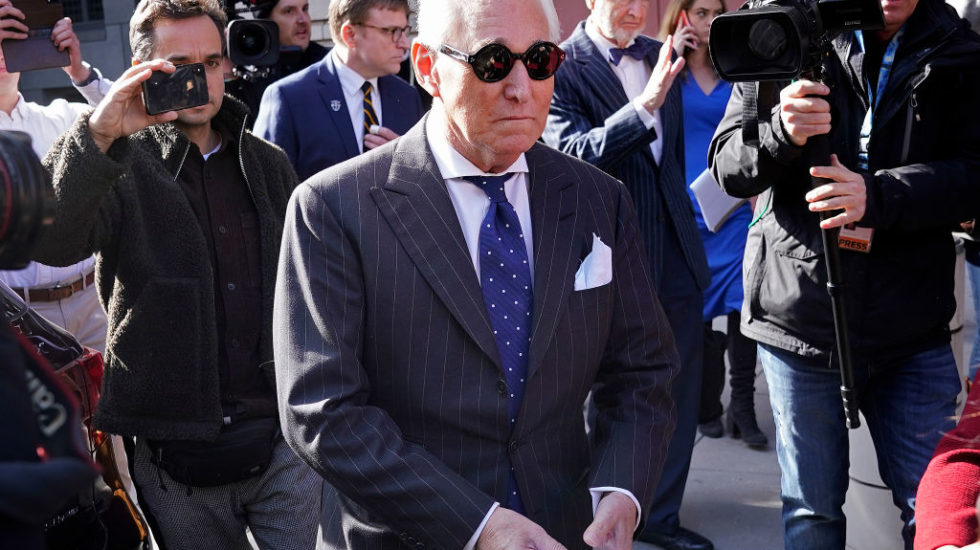All four prosecutors involved in the Roger Stone case have resigned from the case.
Jonathan Kravis, one of the prosecutors, wrote in a court filing he had resigned as an assistant U.S. attorney, leaving government altogether. Three others — Aaron S.J. Zelinsky, Adam Jed and Michael Marando — asked a judge’s permission to leave the case.
Zelinsky, a former member of special counsel Robert S. Mueller III’s team, also indicated in a filing he was quitting his special assignment to the D.C. U.S. Attorney’s Office, though a spokeswoman said he will remain an assistant U.S. attorney in Baltimore.
None of the prosecutors gave a reason for walking away from the case. But this all comes after Donald Trump wielded his power of president-by-tweet to rescue his old friend Roger Stone from years in prison.
The prosecutors told a judge on Monday that Stone should serve 7-to-9 years behind bars for lying to Congress and witness tampering. Stone was charged and convicted last year as part of special counsel Robert Mueller’s investigation of Russian meddling in the 2016 U.S. election.
But on Tuesday — after Trump tweeted overnight that he could not “allow this miscarriage of justice!” against his longtime crony — the Justice Department said it was reconsidering that sentencing recommendation.
Justice officials were widely expected to call for a significantly lighter sentence than proposed by their own prosecutors.
The Twitterverse lit up with comments and criticisms of the abrupt turnaround.
A “senior Justice Department official” told CBS News on Tuesday that the department was “shocked” by the prosecutors’ initial recommendation.
“Stone has been a friend and adviser to Trump since the 1980s and was a key figure in Trump’s 2016 presidential campaign to discover damaging information on Democratic opponent Hillary Clinton,” reports the Washington Post.
Stone’s lawyers want the judge to give him probation, “citing his age, 67, and lack of criminal history,” the Post says.
Federal guidelines “typically call for a sentence ranging from 15 to 21 months for first-time offenders convicted of obstruction offenses, such as lying to Congress, making false statements and witness tampering,” the Post says. But longer sentences are not uncommon when additional factors are involved, as they were in Stone’s conviction
Trump’s effort to “take care” of Stone “is the latest step in a public communication between the two longtime partners. Stone, along with his former partner, Paul Manafort, were Trump’s two closest back channels to Russia during the [2016] campaign,” says New York magazine.
Manafort is currently serving 7½ years in prison for conviction on charges similar to those against Stone.
Stone is scheduled to be sentenced next week. If he does get significant jail time, Trump has hinted strongly that a presidential pardon might be next.
“There is no way you can come away from this with anything other than an impression that Justice is taking its orders from the president and pandering to the president. Mary McCord, former federal prosecutor via The Washington Post
As for the new recommendation, NBC writes:
The revised recommendation doesn’t ask for a particular sentence but says the one that was recommended earlier “does not accurately reflect the Department of Justice’s position on what would be a reasonable sentence in this matter” and that the actual sentence should be “far less.”
It urges the judge in the case, Amy Berman Jackson, to consider Stone’s “advanced age, health, person circumstances, and lack of criminal history in fashioning an appropriate sentence.”



